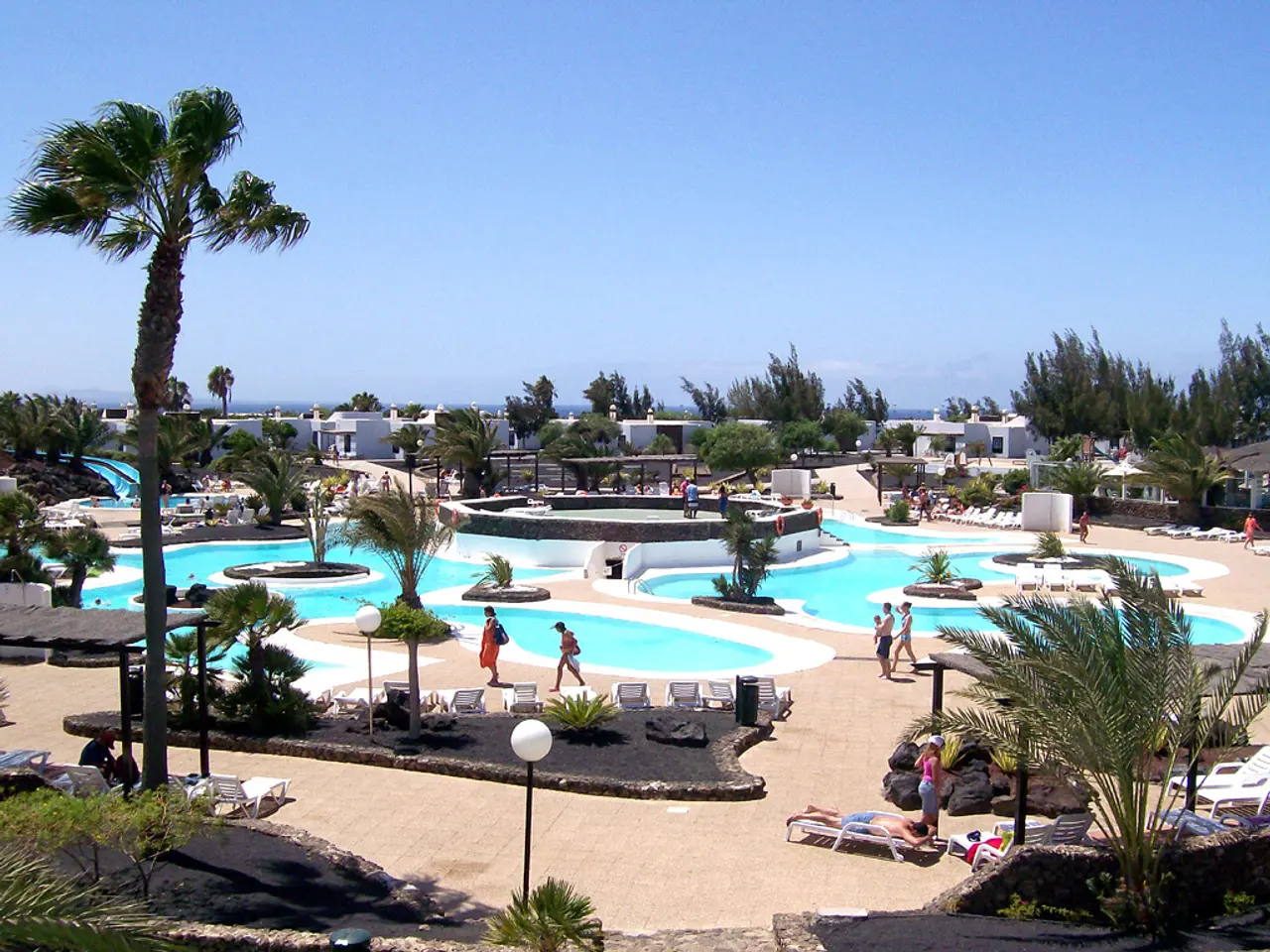Global Alert: Iconic Tourist Spots Across the Globe are Implementing Closure Policies
**Managing Tourism Sustainably: A Look at Global Destinations**
In an effort to balance the influx of tourists with the preservation of local quality of life and environmental sustainability, popular destinations worldwide are implementing various strategies to manage overtourism. These approaches, which include regulatory, financial, and infrastructural measures, are underway in cities such as Venice, Amsterdam, and Florence, as well as regions like Thailand, Iceland, and Hawaii.
**European Cities**
In Venice, measures like limiting cruise ship access and introducing tourist entrance fees are being used to manage overcrowding. Cities such as Amsterdam and Florence are following suit by regulating visitor numbers, promoting responsible travel, and controlling short-term rentals. Barcelona, serving as a European example, has increased municipal tourist taxes and plans to eliminate short-term tourist rentals by 2030.
**Spain’s Approach**
Spain is leading a revolutionary approach in 2025, focusing on protecting cultural heritage and local economies without discouraging tourism outright. Measures include regulating visitor numbers, controlling and progressively eliminating short-term rentals, increasing tourist taxes during peak seasons, and promoting sustainable travel practices.
**Thailand, Iceland, and Hawaii**
While specific 2025 policies for these destinations are not yet available, broader global trends suggest they are adopting similar strategies. Thailand is known for imposing entrance fees to popular sites, limiting tourist numbers seasonally, and encouraging tourism in less-visited areas. Iceland uses a visitor management system that includes promoting off-season travel, enforcing sustainable travel guidelines, and requiring permits for sensitive natural sites. Hawaii implements measures such as visitor education on environmental protection, limits on certain high-traffic locations, and regulations on short-term rentals.
**The Role of Destination Management Organizations**
Effective destination management organizations (DMOs), which include local, regional, and national government participation, are essential in balancing the interests of residents, businesses, and visitors. Sustainable tourism frameworks aim to ensure tourism sustains the local economy while maintaining residents' quality of life and preserving cultural and environmental assets.
**Summary Table of Key Overtourism Management Efforts**
| Destination / Region | Policies & Efforts | Objectives | |---------------------|----------------------------------------------------------------|--------------------------------------------------| | Venice | Cruise ship limitations, entrance fees | Reduce congestion, protect heritage | | Amsterdam | Regulating short-term rentals, tourist taxes | Protect housing market, balance local economy | | Florence | Visitor number controls, sustainable travel promotion | Cultural preservation, resident wellbeing | | Spain (e.g., Barcelona) | Tourist tax hikes, rental limits, cruise ship restrictions | Sustainable tourism, cultural and economic balance | | Thailand | Entrance fees, visitor caps at key sites, disperse tourists | Environmental protection, community safeguard | | Iceland | Permits for natural sites, off-season travel promotion | Environmental sustainability | | Hawaii | Visitor education, rental regulations, site capacity limits | Preserve nature, community character |
The overarching theme across these destinations is a shift towards responsible, sustainable tourism that respects local communities and environments while maintaining the economic benefits of tourism. This involves a combination of policy tools including visitor caps, tourism taxes, rental controls, infrastructure adjustments, and destination management organizations collaborating at multiple governmental levels.
Travelers are encouraged to stay informed about destination-specific policies and to follow sustainable travel practices to ensure a positive impact on the destinations they visit. For further insights about responsible travel and the potential downsides of cruising, consider reading "What Cruise Lines Don't Want You to Know: 20 Candid Insights."
[1] "Sustainable Tourism: Balancing Tourism and Local Communities." United Nations World Tourism Organization.
[2] "Barcelona to ban short-term rentals by 2030." BBC News.
[3] "Amsterdam to ban new hotels to control tourism." The Guardian.
[4] "Venice to charge day-trippers €5 entrance fee from 2024." The Local Italy.
-By adhering to sustainable travel guidelines, travelers can contribute to the success of their trips and respect the lifestyle of the local communities they visit.- To promote a balanced approach to tourism, general-news outlets can provide tips for responsible travel, highlighting the efforts being implemented in popular destinations like Venice, Amsterdam, and Florence, as well as Thailand, Iceland, and Hawaii.




